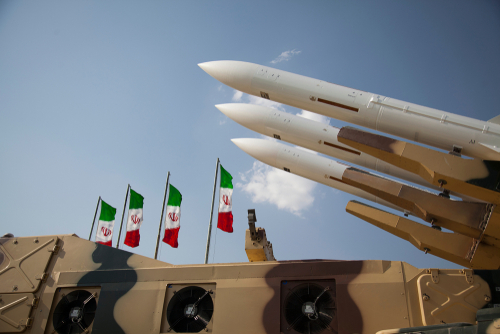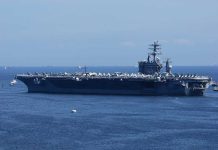
The U.S. recently committed to deploying the THAAD missile defense system to Israel, a move that underscores its steadfast alliance amid escalating tensions with Iran.
At a Glance
- The U.S. will deploy troops and a missile defense system to Israel due to growing tensions with Iran.
- The deployment involves sending the Terminal High Altitude Area Defense (THAAD) system.
- 100 U.S. military personnel will man the THAAD system in Israel.
- Iran criticizes the deployment, warning of increased tensions.
THAAD Deployment to Bolster Israel’s Defense
The Pentagon has announced the movement of the advanced Terminal High Altitude Area Defense (THAAD) system to Israel, involving the deployment of nearly 100 U.S. soldiers. The addition of 48 interceptors capable of targeting short- to medium-range missiles will augment Israel’s missile defense capabilities amid threats described as imminent by military officials. This deployment follows similar initiatives, with THAAD units previously positioned in Israel for training and joint exercises in 2019.
This reinforced defense system aims to support both U.S. and Israeli forces, highlighting a long-standing military alliance. President Joe Biden reinforced this commitment, though acknowledging that increased militarization may heighten regional tensions, potentially leading to broader confrontations with Iran.
At the direction of the President, Secretary Austin authorized the deployment of a Terminal High-Altitude Area Defense (THAAD) battery and associated crew of U.S. military personnel to Israel to help bolster Israel's air defenses following Iran's unprecedented attacks against… pic.twitter.com/P2FJVaOqIt
— U.S. Central Command (@CENTCOM) October 13, 2024
Impact on Middle East Tensions
Iran’s reaction to the U.S. deployment has been notably critical, with Iranian Foreign Minister Abbas Araghchi accusing the U.S. of risking military personnel. Iran’s current stance reflects an intent to safeguard its interests while warning against further military interventions that could spiral into conflict. The Iranian military, backed by regional allies such as Hezbollah, has executed multiple attacks on Israeli targets, raising alarms internationally.
Regional Military Developments
Recent incidents underscore the volatile climate, including an airstrike by Iran-backed Hezbollah resulting in Israeli military casualties, and a subsequent assault injuring U.N. peacekeepers in Lebanon. These occurrences have led Israeli Prime Minister Benjamin Netanyahu to advocate for the repositioning of UNIFIL forces away from immediate threats. A spokesman for the U.N. Secretary-General underscored that attacks on peacekeepers could be classified as war crimes, urging for safety measures and respect for U.N. presences.
The U.S.’s dedication to Israel involves strategic defense maneuvers like this THAAD deployment. This action is a statement reinforcing the importance of the Israeli-American alliance amid increasing threats and demands prudent diplomatic navigations to prevent escalation in the notoriously unpredictable Middle East.








